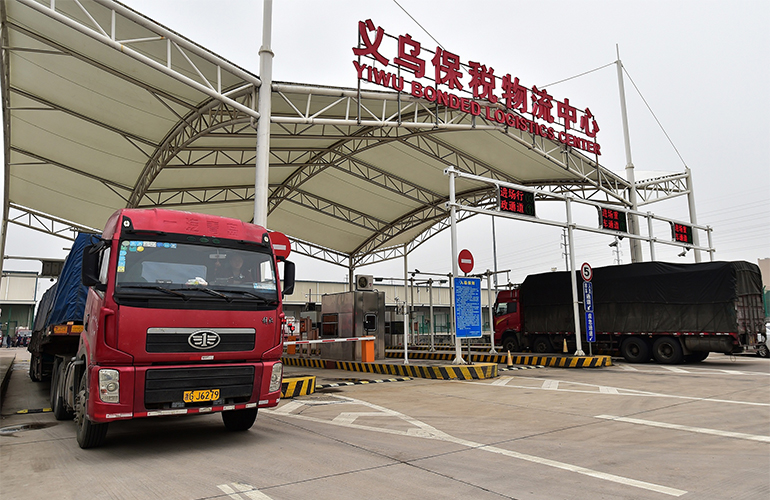 China's Yiwu Plans to Exceed USD13.8 Billion in Imports Next Year
China's Yiwu Plans to Exceed USD13.8 Billion in Imports Next Year(Yicai) Dec. 12 -- Yiwu, known as the world's capital of small commodities, received approval from the Chinese government to launch a new round of international trade reforms, which can help the city reach its import target of over CNY100 billion (USD13.8 billion) next year.
The reforms are expected to provide further impetus to Yiwu's import development, according to a notice released on the government's website yesterday. They propose that the city will keep its export advantages and increase efforts in imports while accelerating the establishment of rules and standards for comprehensive bonded zones, cross-border e-commerce, and domestic and foreign trade integration.
Yiwu's imports and exports rose 18.3 percent to CNY560.2 billion in the 10 months ended Oct. 31 from a year ago, nearing last year's total, according to official figures. Its imports jumped 19.5 percent to CNY65.7 billion (USD9 billion), while exports climbed 18.1 percent to CNY494.5 billion, with the latter's growth rate significantly higher than that of China.
The United States and other countries have launched new inventory replenishment cycles, leading Yiwu's strong export growth of traditional foreign trade manufacturing products to mature markets. In addition, the 2024 Paris Olympic Games and major football events also boosted sporting goods exports.
Another important reason for Yiwu's export gain is the diversified market structure. Its trade with Africa climbed 17.3 percent to CNY101.7 billion in the first 10 months, that with Latin America rose 26 percent to CNY95.5 billion, with the US surged 42 percent to CNY76.3 billion, and with the Association of Southeast Asian Nations jumped 25 percent to CNY52.6 billion.
With the approval of the cross-border foreign exchange qualification of Yiwu Pay last year, the city also has its global payment platform that broadens the local data flow and capital flow. The city's cross-border e-commerce sales rose 16.5 percent to CNY117.3 billion, with Amazon, AliExpress, and other leading sites setting up regional e-commerce service centers.
Editor: Martin Kadiev